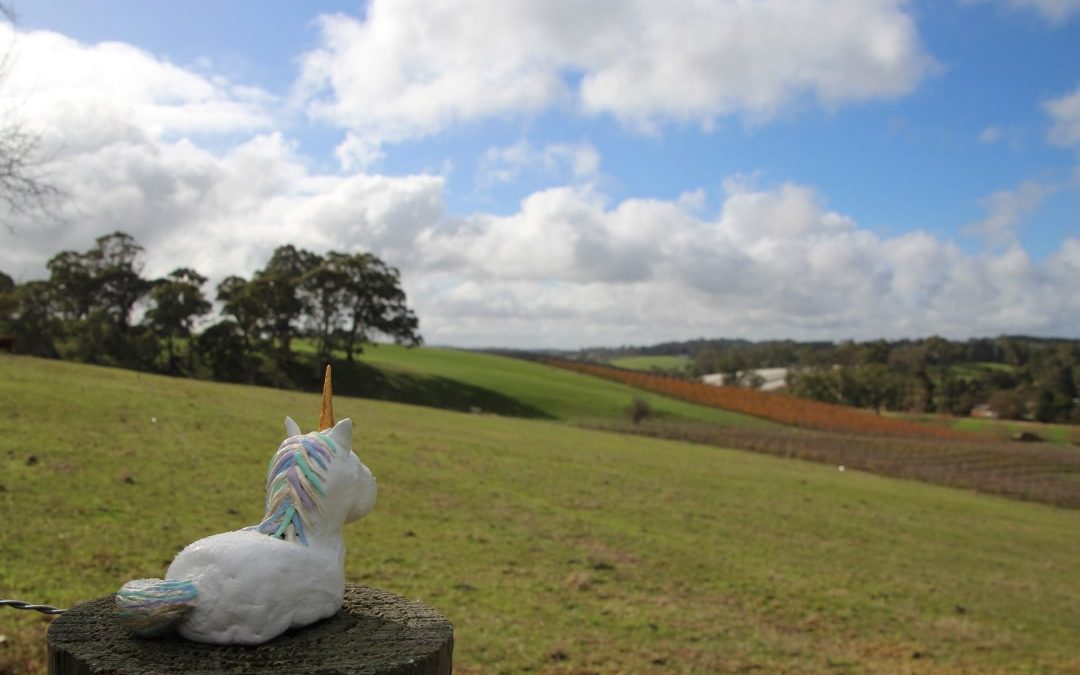As someone who has struggled with agoraphobia (and sometimes still struggles with this), whenever anyone would say, “get outside your comfort zone!” suggesting that this was the optimal way to live, my first thought was, no, and my second was, we should change that cliched phrase to “pushing the boundaries of your comfort zone.”
Getting out of your comfort zone is up there with my most disliked phrases and quotes, others being “go hard or go home” (well, if it’s all the same to you, I’ll go home please) and “fake it till you make it” (ugh, really? How about some authenticity) and “curiosity killed the cat” (forgetting that “satisfaction brought it back” – stay curious, people, and love cats).
For so much of my life I struggled with self-acceptance as a homebody (even without the deep fear of leaving the house lest something awful happen). I found self-acceptance especially difficult when people went around touting shit like “get out of your comfort zone”, and also found it difficult to accept my homebody tendencies living in a culture that promoted and glorified socialising and activities outside of the home.
It was as if I internalised the message, if you’re not going out every day or challenging yourself every other day, are you even worthy to be on the planet?!
The social activities that were heavily promoted and acceptable often led me to an introvert hangover and social burnout as I tried to keep up with those external unspoken demands and expectations.
In recent years, I’ve had some health challenges that have made self-acceptance as a homebody not only worthwhile, but necessary to my wellbeing.
Writing, and especially the practice of journaling, has helped me immensely to not only accept myself more as a homebody, but to feel like I’m a thriving homebody worthy of anything that a social butterfly would be worthy of.
My Homebody History
The message I grew up believing from vague sources unknown, was that people who preferred staying home to going out with friends were boring, unsociable, outcasts and loners (think of the weird characters in books like witches and people who don’t fit in, who live on the hedges of the society they belong to but never fully belong to).
On top of that, there was also the general feeling that to be a homebody means that you don’t have friends, you can only have friends if you’re out there socialising, and that everybody needs human friends.
I call partial bullshit on those things.
You can certainly have friends as a homebody, and many homebodies I know have quality friendships that they treasure (often with other homebodies).
If people have access to the internet or phone service or even the post office, you can make friends and connect with others in many ways other than in-person socialisation. There’s some debate about whether online connection can replace in-person connection, which I won’t go into. For the purposes of this blog post, I’m not suggesting we replace in-person connection with online connections, but just recognise that in-person connection is not the be all and end all of socialising, especially if someone doesn’t have the capability or capacity to do so. I’d also like to take the pressure off us homebodies who are doing the best we can at connecting and socialising.
As for everybody needs human friends, have y’all not seen those Disney films where animal companions are integral to the story and the main character’s wellbeing?
I mean human friends are great (and I do have those), but I think animal friends and companions are equally valuable and should be more recognised in the zeitgeist.
Plant friends as well; I’m out there talking to the plants in my garden, the trees, and in the words of Bob Ross, “There’s nothing wrong with having a tree as a friend.”
Let’s normalise and celebrate that and the friendships that come in all forms.
To connect, and for extra content, updates and other good stuff, you’re warmly invited to join The Quiet and Curious folk community by signing up to the email newsletter below:

Pushing the boundaries of your comfort zone
Getting back on track with the whole awful notion of “getting out of your comfort zone” (I bet an adventurous extrovert came up with that one), I have a few thoughts.
The problem with stepping out of your comfort zone, is that it’s often someone else’s definition of comfort zone that you’re stepping out of. Not your own.
The other problem for me was that every bloody day I was stepping out of my comfort zone just by doing “normal people things” (as I called them) and leaving the house. A lot of the daily activities and socialising that were just expected were already outside my comfort zone.
I love what Paul Micallef from Autism From The Inside said about this: “In order to step outside of your comfort zone, you need to start in your comfort zone.” He gets it.
As an example, one of my neighbours is about to do the Camino de Santiago pilgrimage, while I’m still getting the hang of walking to the grocery store to get veggies without wigging out.
Everyone’s comfort zone will look different. And often for homebodies our comfort zone will be our own homes.
Here is where I’d like to propose a different idea: instead of living or stepping outside of our comfort zones, how about we instead, as one psychologist advised me to do, push the boundaries of our comfort zones so that our comfort zones actually expand over time and we don’t feel so freaked out.
I feel like this is a process that can be broken down into the following steps:
- Define your comfort zone (not what other people think it “should” be, but what is your comfort zone?). Start in your comfort zone.
- Get comfortable and regulated (this will take as long as it takes, and took me some time as I was recovering from trying to live a life that wasn’t aligned with my natural tendencies – have you ever read the book Topsy and Turvy by Justin D’Ath?)
- Define what kind of life you want to live.
- Work out what things outside your comfort zone you might need to do in order to live that life.
- Gradually begin, at your own pace, to engage in these activities, making sure to have plenty of rest and down time in your safe space with your animal companions, houseplants, or other non-people friends (or safe human friends if that’s your thing).
As you go about pushing the boundaries of your comfort zone at your own pace, you may notice as I did that the boundaries of your comfort zone start to shift and expand. I started feeling more comfortable in situations that a few years prior I would have avoided at all costs.
It all started with me accepting where I was in my comfort zone and clearly defining for myself, through journaling mostly and talking to my animal companions and plant friends, what all this meant for me.
Be patient with yourself and always go at your own pace.
20 Journaling Prompts
- I feel most comfortable when _______.
- I feel most comfortable around ________ (friends, animals, nature…?)
- Activities that regulate my nervous system include _______.
- In my ideal life I would be ________.
- In order to be living this life, I would need to ________.
- The most important of these is _______.
- The first small step with a mighty impact I could take is ________.
- If things get too challenging, I can ________.
- Homebodies are _______.
- Some things that I’ve believed about homebodies or those who prefer a more solitary life have been _______.
- What I would now like to believe is ________.
- I’m really good at _______.
- My animal companion (or house plant or most treasured person) thinks I’m _______.
- What I really enjoy about the homebody life is _______.
- The absolute best thing about being a homebody is _______.
- These are 10 nice things that I could do for myself to show myself some love and appreciation ________.
- Things that bring me a lot of joy and upliftment are _______.
- I could be kinder to myself by ________.
Final Thoughts
Let me know what you thought of my take on pushing the boundaries of your comfort zone, and feel free to share your journaling prompt answers!
Are there any phrases that you find really unhelpful to your situation? I’d love to hear about them and possibly debunk them with you.
You can reach out to me at [email protected] or comment below.
I’d love to hear your quiet thoughts.
Love,

If you’d like to hear more, you’re warmly invited to sign up to get my weekly email newsletter below:



